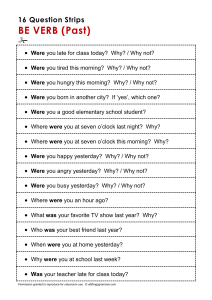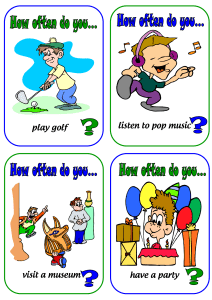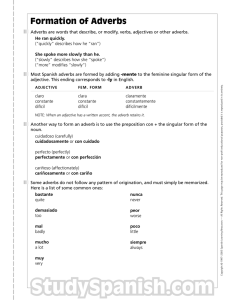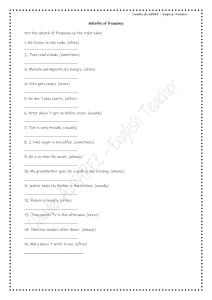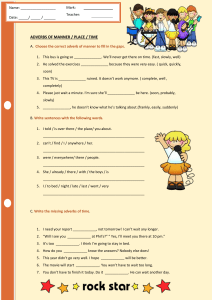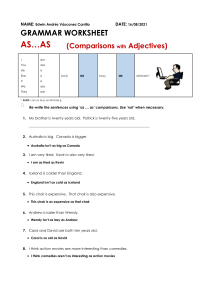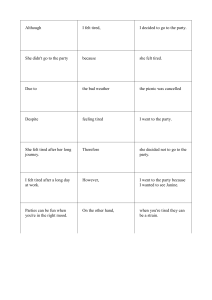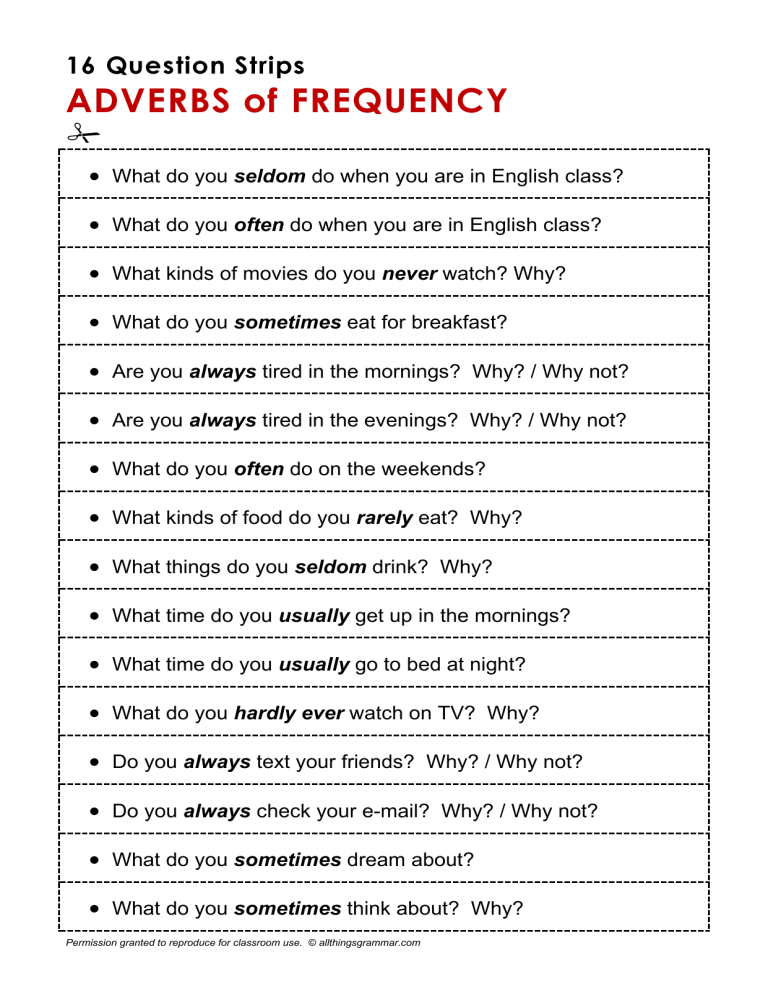
16 Question Strips ADVERBS of FREQUENCY • What do you seldom do when you are in English class? • What do you often do when you are in English class? • What kinds of movies do you never watch? Why? • What do you sometimes eat for breakfast? • Are you always tired in the mornings? Why? / Why not? • Are you always tired in the evenings? Why? / Why not? • What do you often do on the weekends? • What kinds of food do you rarely eat? Why? • What things do you seldom drink? Why? • What time do you usually get up in the mornings? • What time do you usually go to bed at night? • What do you hardly ever watch on TV? Why? • Do you always text your friends? Why? / Why not? • Do you always check your e-mail? Why? / Why not? • What do you sometimes dream about? • What do you sometimes think about? Why? Permission granted to reproduce for classroom use. © allthingsgrammar.com 16 QUESTION STRIPS All Things Grammar Grammar Focus Adverbs of Frequency Level Beginner to Elementary (CEFR Level A1) • As a Seated Activity Have your students seated in pairs or in groups of three. Lay the sixteen cut-up questions – face-down – between the students. Students take turns randomly selecting questions to ask their partner(s). Encourage follow-up questions. Be sure to set a time frame for your students (try starting with 10 – 15 minutes for 16 questions; you may want to adjust this in later classes). Monitor and assist. • As a Standing Activity 1 Have all your students stand up. Give one question strip to each student. Students find a partner and ask their question. Encourage follow-up questions. After the students have asked each other their questions, have them exchange question strips and find new partners and continue. Set a time frame as above. Monitor and assist. • As a Standing Activity 2 This activity runs exactly the same as in ‘Standing Activity 1’ except that students first have about a minute to memorize their question (before placing it in their pocket – it can be used as a prompt if needed). After each short conversation, students ‘mentally exchange’ their questions – they must help each other memorize their new questions before setting of to find a new partner. This activity version is a little challenging, but also lots of fun – and it’s great to see all the learning that takes place! Set a time frame as above. Monitor and assist. Permission granted to reproduce for classroom use. © allthingsgrammar.com
